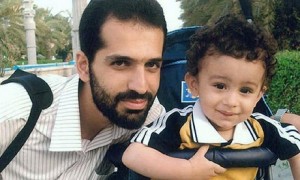
“The American political leaders who support the de-listing of the MEK terror group"
By Jim Lobe,
... two “senior State Department officials” who cannot be otherwise identified, briefed the press on the decision in a teleconference last Friday afternoon, Sep. 28.
They explained the reasons for the de-listing, while making very clear the administration’s institutional distaste for the MEK. As was reported in the mainstream press, they said, among other things:
…[T]he Department does not overlook or forget the MEK’s past acts of terrorism, including its involvement in the killing of U.S. citizens in Iran in the 1970s and an attack on U.S. soil in 1992. The Department also has serious concerns about the MEK as an organization, particularly with regard to allegations of abuse committed against its own members. The Secretary’s decision today took into account the MEK’s public renunciation of violence, the absence of confirmed acts of terrorism by the MEK for more than a decade, and their cooperation in the peaceful closure of Camp Ashraf, their historic paramilitary base.…

As the briefing progressed, the emphasis was placed very much on the phrase “the absence of confirmed acts of terrorism,” as when one questioner recalled the NBC report earlier this year that quoted one unnamed U.S. official as confirming Iran’s charges that Israel had used MEK militants in recent years to carry out assassinations of Iranian scientists associated with Tehran’s nuclear program. The briefing’s senior official repeated the mantra about “confirmed acts”, noting,
And I should add that the United States Government has not claimed that the MEK was involved in the assassination of scientists in Iran. And that’s really all we’re going to have to say on that.
I followed up later in the briefing by asking whether the U.S. government considered the assassination of Iranian scientists an act of terrorism, and the following colloquy ensued:
Briefer: “If we had information on that and could pursue it, we would, but as I said, we have never said that this group was involved in those assassinations.”Question: “…I just wanted to find out whether the USG considered that the assassination, regardless of who it was by, of Iranian scientists, would constitute an act of terrorism.”Briefer: “Well that would be my understanding, but I think you’d have to have the lawyers take a look at that.”
I may be wrong about this, but I think this was the first acknowledgment by a senior State Department official that killing Iranian scientists was an act of terrorism. At the time of the assassination last January of Mostafa Ahmadi Roshan, my recollection was that, while vehemently denying any responsibility for the killing, U.S. officials avoided using the word “terrorism” in describing the act. As Clinton said at the time, “I want to categorically deny any United States involvement in any kind of act of violence inside Iran.” Other officials also referred to the killing as violence, rather than terrorism. It seemed a deliberate avoidance; after all, all eyes were focused on Israel as the most likely instigator, if not perpetrator, of the killing — an assumption that Israeli officials did very little to dispel — and it would be politically pretty dicey for the Obama administration to suggest that Israel practices terrorism against its perceived enemies.
Of course, the senior State Department official who said it would be his understanding that the assassination constituted terrorism added an artful hedge, suggesting that the lawyers would have the last word on the question. And, because the briefing was on “background,” his statement did not constitute “official” U.S. policy in as authoritative a way as if it had been “on the record,” in which case his name would be public. But henceforward, at least, there is some institutional backing for the notion that killing Iranian scientists does indeed constitute terrorism and that those who are responsible can therefore be considered terrorists, including states.
Asked whether the U.S. might engage the MEK as a party in U.S. relations or actions regarding Iran, the same senior State Department official was pretty unequivocal:
I want to be very clear about this. We do not see the MEK as a viable opposition or democratic opposition movement. We have no evidence and we have no confidence that the MEK is an organization that could promote the democratic values that we would like to see in Iran.There is nothing in the way they govern themselves that would suggest they’re interested in adopting democratic principles, and there is a long and fairly rich set of documentation on how they treat their own personnel that really does suggest to the contrary. So continue to have serious concerns about the group with regard to allegations of abuse that’s committed against its own members. They are not part of our picture in terms of the future of Iran.
It will be interesting to see if the advocates MEK has been able to accumulate and/or buy among former officials and members of Congress can overcome get any traction in the coming months.
Via: "LobeLog"
No comments:
Post a Comment